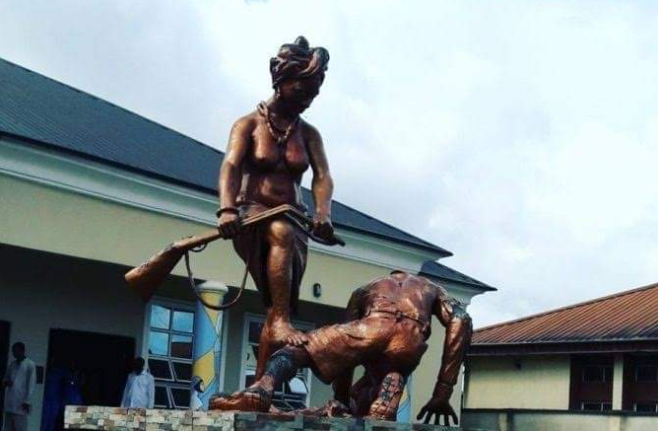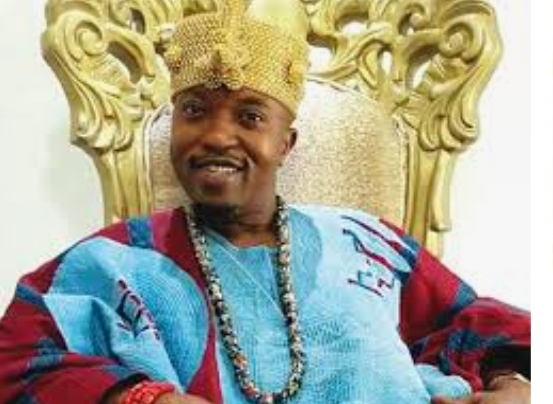By Michael Effiong
History is said to be the record of past events. It is actually the combination of two words-His (apologies to the women activists) and story. So technically, it is the story as told by someone.
Therefore, the person telling the story is of great significance and that is why when you flip through the Holy Bible’s New Testament, you will find Matthew, Mark, Luke and John recording and reporting almost the same events but their nuances are obvious .
What this means is that history can be distorted or more accurately embellished or twisted to fit the narrative of the writer.
This essentially was what famous writer, Chimanda Ngozi Adichie was canvassing in her TED Talk titled “The Danger of a single story”.
Adichie believes that stories matter, but that all too often in our lives we operate from the perspective of hearing and knowing a single story- about a person or situation.
She went further to state that the risk of the single story is that it can lead us to default assumption, conclusions and decisions that maybe incomplete and/or completely false.
For her, in any historical account, who told the story, how and when the story was told can taint, frame and affect the narrative.
It is within this context that one has to examine the false narrative by historians that there was an “Aba Women Riot”, when in fact the only recorded riot that led to deaths of women in 1929 happened in Ikot Ibasi, in present day Akwa Ibom State and therefore, that riot, should appropriately have been referred to as IKOT ABASI WOMEN RIOT!
This is how the incident is recorded if you consult Google: According to American Historical Association: “In Nigeria there occurred what colonial historians have called the Aba Women’s riots of 1929, but it should be termed the Aba Women’s rebellion. This was touched off by the imposition of direct taxation and the introduction of new local courts and especially of warrant chiefs.” [A. Adu Boahen, African Perspectives on Colonialism (Baltimore, 1987), p. 79.
“Here is one account of this rebellion by a person who called the episode a riot in her 1937 book, Native Administration in Nigeria (London, 1937). The author, Margery Perham, was regarded as a friend of Nigeria and the Igbos until the Biafran secession movement. The participants in this event were Igbo”.
Wikipedia: The Aba Women’s Riots of 1929 (Igbo: Ogu Umunwanyi; Ibibio: Ekong Iban) was a period of unrest in colonial Nigeria over November 1929. The protests broke out when thousands of Igbo women from the Bende District, Umuahia and other places in southeastern Nigeria traveled to the town of Oloko to protest against the Warrant Chiefs, whom they accused of restricting the role of women in the government. It was organised and led by the rural women of Owerri and Calabar provinces.
If you look carefully at the “authorities” quoted above, you will realise that none is from the very area or have any relationship with those who actually were involved in the situation and therefore, even if it was oral history that they used to develop their account, it could certainly not have been accurate.
For those who don’t know ,the riots built up from the January 1, 1914 when the first Nigerian colonial Governor, Lord Lugard instituted the system of Indirect Rule in Southern Nigeria. Under this plan, the British Administrators ruled through Warrant Chiefs, who worked with the colonial officers.
The Warrant Chiefs as is the case with some people in power became power drunk, they became oppressive, seized property, imposed draconian regulations and even imprisoned those who opposed as the years went by.
It was within this context that the British colonial administration decided to impose a special tax on Market women in 1929.
So, it was not long that the women decided to take matters in their hands and began to protest in many cities but there is no evidence that the women were shot at and killed like was done in Ikot Abasi. How did I know? Well the scars and evidence are right there in Ikot Abasi!
That is not all, to drive this point home, the Ikot Abasi protest was led by the paternal grandmother of the former minister and senator, Udoma Udo Udoma. She was even killed in the process.
Udoma in an interview said he never met the brave woman, but he heard enough stories about her to make him proud of his heritage.
According to him: “As you all know Madam Adiaha-Edem, the leader of the Ikot Abasi women protesters was my paternal grandmother. She was a very successful trader and community leader. As a big trader, she was a wholesale distributor of products such as bar soap, salt, detergents, stockfish, and kerosene. Her traded volumes were so large that, to guarantee her supply, she used to deposit large sums of money with such big trading outfits as G.B. Ollivant Limited and African Traders Corporation. She also had a big market stall and was a seamstress. A very enterprising woman indeed!”
“But not only was she successful, she was also independent minded. She did not mind going against local norms once she was convinced about something. That was how she converted to Christianity, a few years after my father was born.
She became such a strong Christian that she even tried to convert her husband, my grandfather. But my grandfather was adamant that as a leading and highly respected figure in the society, and as a custodian of the culture and traditions, he could not abandon the beliefs of his ancestors! This caused tremendous stress in their marriage and led, ultimately, to a divorce.
“She was a truly remarkable woman. Unfortunately, since she was killed in 1929, and I was born in 1954, I never met her. I don’t even know what she looked like because in 1929 our people had not yet developed the practice of taking studio photographs of themselves. However, as a young boy, I heard stories of what happened to my grandmother. I used to marvel at her bravery and courage and that of all the women who accompanied her in confronting the British colonial administration.”
“The immediate cause of the protest was the introduction of direct taxation, which the women understood was going to be extended to trading and other activities, principally carried on by women. Whilst the introduction of direct taxation in 1929 was resented by all, it was the women who were adamant that they were not going to pay any such taxes”.
“Many of the women were, like my grandmother, traders, and they travelled around and had extensive connections. The first protests erupted in Oloko in Owerri Province on November 23, 1929. It spread quickly to Aba and certain parts of Calabar province. But it was in Egwanga, now called Ikot Abasi, that the protests came to a head. In the afternoon of Sunday, December 15, 1929, the angry women stormed the buildings of the native court and part of the staff quarters.
“The next day, Monday, December 16, the women were invited to meet with the District Officer, A. R. Whitman. Even though some of the women were reluctant, my grandmother, as their leader, convinced them to go. She reckoned that change could only come after engagement and negotiation. She led the women leaders to meet with Whitman and presented him with a list of seven demands – the most prominent was a commitment from the government not to tax women.
“Just after the document had been typed, signed and distributed, more women arrived, and a crowd surged towards the office breaking through the stick fence. Even though the women were unarmed, Whitman lost his nerve and ordered the soldiers to open fire.
“A Captain Hill, who commanded the troops, was the first to fire. He brought out his pistol and shot my grandmother at point blank range. She died on the spot. The other soldiers fired their rifles straight at the women and twenty-five women were killed outright. More women were killed in the ensuing stampede. They were pursued all the way to the waterfront”. What a tragic day.
“There was palpable shock that unarmed women who were simply protesting against government policy could have been mowed down in this manner. My father, who was then just 12 years old, was invited to the scene by the British to identify the body of his dead mother. He was inconsolable and was traumatised by that incident. The whole community was in shock. How could this have happened to some of the leading women in the community who were simply exercising their rights of protests!
“The government immediately deployed more troops to Ikot Abasi and announced the setting up of a commission of inquiry headed by Donald Kingdom. As to be expected, in its report, the commission described it as a mob action directed at overthrowing the colonial administration and justified the action of the district officer.
“However, the women’s riot had a tremendous impact on the subsequent development of women in the region, and on the colonial administration itself. A number of administrative reforms were introduced in the years following the protests, including appointing some women as Warrant Chiefs”. We can therefore say, that this first real resistance movement by the brave Ikot Abasi women was not in vain.
This is the true story as told by someone who should know, who was technically, directly affected, and there is no way that I will doubt the account of Senator Udoma.
His account would have been formed by oral history passed down by family members especially his father, Justice Egbert Udo Udoma, KBE,.
Sir Udoma who lived to the ripe old age of 84 was a lawyer and justice of the Nigerian Supreme Court. He was Chief Justice of Uganda from 1963 to 1969. He spent 13 years as a judge on the Supreme Court of Nigeria and was chairman of the Constituent Assembly from 1977 to 1978. He was one of the founding fathers of Nigeria.
Udoma was not just a guiding light to many, but also an astute scholar, erudite jurist and great legal mind, and he was one of the “Few Good Men” that Nigeria has ever produced. He could certainly not have lied about going to identify his mother’s lifeless body and the incident of that day.
Though the true story of this sad historical incident has been aptly captured in a story, dance and drama by Joseph Edgar aka Duke of Shomolu in one of his works titled “‘Ufok Ibaan – the Ikot Abasi Women’s Uprising’, the truth is too bitter for many to swallow, and so it did not trend.
But one thing is sure though, soon, very soon, Ikot Abasi will get its rightful pride of place as the town in Nigeria where brave unarmed women were killed in 1929 and the misnomer of “Aba Women Riot” will be finally corrected and the tag “ Ikot Abasi Women Riot” raised for tourists to come, see and spread the word!


 News6 years ago
News6 years ago
 Featured6 years ago
Featured6 years ago
 Boss Picks6 years ago
Boss Picks6 years ago
 Headline6 years ago
Headline6 years ago
 Headline6 years ago
Headline6 years ago
 Headline6 years ago
Headline6 years ago
 Headline6 years ago
Headline6 years ago
 Headline6 years ago
Headline6 years ago













